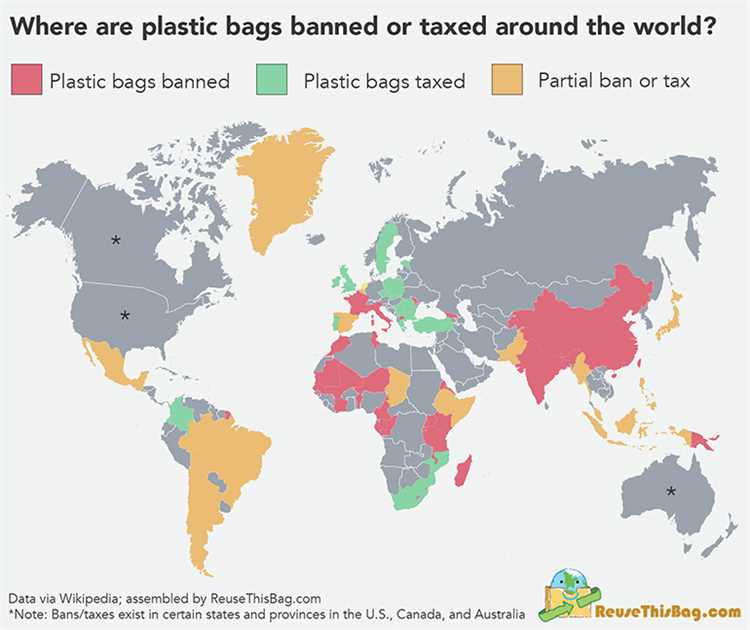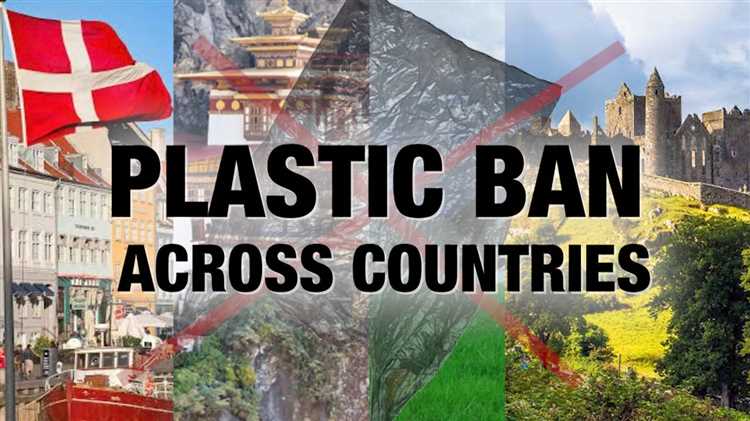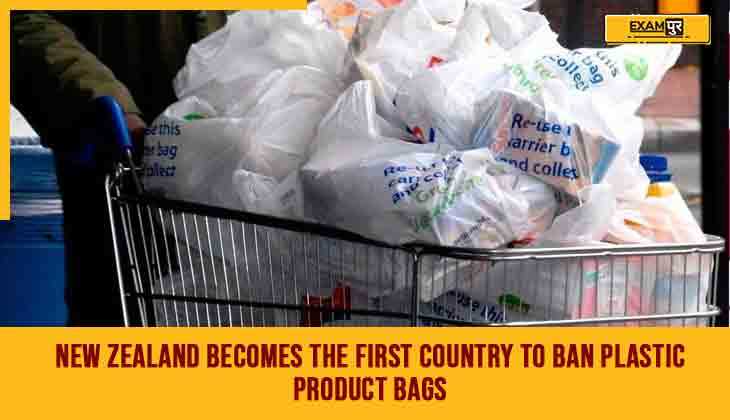
Plastic pollution is a growing concern across the globe. The negative impact of plastic waste on the environment has led many countries to take action. One of the first countries to address this issue was Rwanda.
In 2008, Rwanda implemented a nationwide ban on non-biodegradable plastic bags. This bold move made Rwanda the first country in the world to take such a decisive stand against plastic pollution. The ban prohibits the manufacturing, importation, use, and sale of plastic bags within the country.
Rwanda’s decision to ban plastic bags was driven by a desire to protect its environment and promote sustainable development. The government recognized the detrimental effects of plastic pollution on the country’s ecosystems, including its lakes and rivers. By taking this action, Rwanda set an example for other nations to follow.
Since the implementation of the ban, Rwanda has made significant progress in reducing plastic waste. The country has seen a noticeable decrease in plastic pollution, leading to cleaner streets and healthier ecosystems. Many other countries have taken inspiration from Rwanda’s success and have implemented similar bans to combat plastic pollution.
- Plastic Pollution Crisis
- Efforts to Combat Plastic Pollution
- 1. Plastic Bans and Restrictions
- 2. Recycling Programs
- The First Country to Ban Plastic
- Historical Background
- Implementation and Impact
- Positive Environmental Effects
- Socio-Economic Impact
- Q&A:
- When was plastic first banned in a country?
- Why did Bangladesh ban plastic?
- Was Bangladesh successful in banning plastic?
- Which country banned plastic after Bangladesh?
- Are there any other countries that have banned plastic?
- Which was the first country to ban plastic?
Plastic Pollution Crisis
Plastic pollution has become a global crisis, threatening the health of our environment, wildlife, and human populations. The widespread use of plastic materials and the improper disposal and management of plastic waste have resulted in an alarming accumulation of plastic pollution in our oceans, rivers, and landfills.
This crisis poses enormous challenges to marine ecosystems, as plastic waste endangers the lives of marine animals, many of which mistake plastic for food or become entangled in plastic debris. Additionally, plastic pollution poses a serious threat to human health, as toxic chemicals found in plastic materials can leach into food and water sources.
The scale of the plastic pollution crisis requires urgent action and global cooperation to address the issue at its roots. Efforts are being made to reduce the production and consumption of single-use plastics, encourage recycling and waste management practices, and promote the development of sustainable alternatives to plastic materials.
Furthermore, public awareness and education about the impact of plastic pollution are crucial in changing consumer behaviors and habits. Governments, businesses, and individuals all play a vital role in combating the plastic pollution crisis, and a collective effort is needed to protect our planet for future generations.
It is essential that we take immediate action to reduce plastic waste and find innovative solutions to this crisis. By working together, we can create a cleaner and healthier environment for all.
Efforts to Combat Plastic Pollution
In response to the growing concern over plastic pollution, many countries around the world have taken action to combat the issue. Governments, organizations, and individuals have implemented various strategies and initiatives to reduce plastic waste and promote sustainable practices.
1. Plastic Bans and Restrictions
Several countries have implemented bans or restrictions on single-use plastics, such as plastic bags, straws, and cutlery. These measures aim to reduce the amount of plastic waste that ends up in landfills and oceans. Countries like Canada, Australia, and the European Union have implemented legislation to ban or restrict certain types of plastic products.
2. Recycling Programs

Many countries have implemented comprehensive recycling programs to encourage the proper disposal and recycling of plastic materials. These programs involve the separation of different types of plastic waste and the creation of recycling infrastructure for effective processing. Additionally, many countries have implemented deposit return schemes or bottle return systems to ensure the proper recycling of plastic bottles.
3. Awareness and Education
Educating the public about the negative impact of plastic pollution and promoting sustainable alternatives is an important aspect of combating the issue. Many countries have launched awareness campaigns and educational programs to raise awareness about the environmental consequences of plastic waste and to promote behavior change. These campaigns often emphasize the importance of reducing plastic consumption, recycling, and using eco-friendly alternatives.
Efforts to combat plastic pollution are crucial for the preservation of our environment and ecosystems. It requires the collective efforts of governments, organizations, and individuals to adopt sustainable practices, reduce plastic waste, and promote the use of environmentally-friendly alternatives.
The First Country to Ban Plastic
Plastic pollution has become a global environmental issue, and many countries around the world are taking steps to address this problem. However, the first country to implement a nationwide ban on single-use plastics was Rwanda.
In 2006, Rwanda introduced a ban on non-biodegradable plastic bags, becoming the first country in the world to do so. The government’s decision was driven by the need to protect the environment and reduce plastic pollution. Rwanda’s commitment to environmental protection has been recognized internationally, and the country is now often seen as a leader in sustainable development.
The ban on plastic bags in Rwanda has had a significant impact on the country’s environment. Prior to the ban, plastic bags were a common sight littered across the country, causing severe harm to wildlife and clogging waterways. Since the ban, Rwanda has seen a drastic reduction in plastic pollution, and the country has become cleaner and greener as a result.
Rwanda’s success in banning plastic bags has inspired other countries to take similar actions. Today, many countries have implemented their own bans on single-use plastics, following in Rwanda’s footsteps. The global movement to ban plastic is gaining momentum, and more countries are recognizing the urgent need to address this environmental issue.
| Benefits of the Ban | Challenges Faced |
|---|---|
| The ban has led to a cleaner and greener environment in Rwanda. | Initial resistance and difficulty in enforcing the ban. |
| Reduced pollution and harm to wildlife. | Limited availability of alternatives to plastic bags. |
| Inspiration for other countries to implement their own bans. | Need for public awareness and education about the ban. |
The ban on plastic bags in Rwanda is a testament to the country’s commitment to environmental sustainability. By taking bold steps to reduce plastic pollution, Rwanda has set an example for the world and paved the way for other countries to follow suit.
Historical Background
Plastic has been widely used since the early 20th century as a convenient and versatile material. However, its negative impact on the environment became increasingly evident over time. The accumulation of plastic waste in landfills and oceans led to concerns about pollution, wildlife endangerment, and health risks for humans.
Recognizing the urgency of this issue, several countries took action to address the plastic problem. The first country to ban plastic was Bangladesh, a South Asian nation known for its dense population and vulnerability to natural disasters. In 2002, the government implemented a total ban on lightweight plastic bags after they were found to be a major cause of serious flooding during monsoon seasons.
Since then, other countries have followed suit and implemented their own plastic bans. Rwanda, for instance, became the first African country to ban plastic bags in 2008. This ban has been widely successful, resulting in cleaner streets and improved environmental conditions.
Other countries have taken a more gradual approach, implementing restrictions and regulations on certain types of plastic products. For example, the European Union passed legislation in 2019 to ban single-use plastics like plastic cutlery, plates, and straws by 2021.
Throughout the years, the ban on plastic has gained significant momentum, leading to increased awareness and actions around the world. As the detrimental effects of plastic on the environment continue to be recognized, more countries are likely to join the global effort to reduce plastic waste and find sustainable alternatives.
| Year | Country | Action |
|---|---|---|
| 2002 | Bangladesh | Total ban on lightweight plastic bags |
| 2008 | Rwanda | Ban on plastic bags |
| 2019 | European Union | Ban on single-use plastics |
Implementation and Impact
The implementation of the plastic ban policy in [first country] was a significant step towards reducing plastic pollution and promoting environmental sustainability. The government took several measures to enforce the ban. These included implementing strict regulations on the production, usage, and sale of plastic products, and imposing penalties on individuals and businesses found violating the ban. The policy also encouraged the adoption of alternative and eco-friendly materials.
The impact of the plastic ban has been remarkable. One of the major achievements of this policy has been the reduction in plastic waste generation. With the ban in place, the country saw a significant decline in the consumption of single-use plastic products, such as plastic bags and straws. This led to a decrease in the overall plastic waste production, resulting in cleaner and healthier environments.
Positive Environmental Effects
The ban on plastic has had several positive environmental effects. Firstly, it has helped in conserving natural resources. The production of plastic involves the extraction of fossil fuels, which contributes to air and water pollution. By reducing the demand for plastic, the ban has helped in preserving these finite resources and minimizing their negative impacts.
Secondly, the ban has had a positive effect on marine life and ecosystems. Plastic waste is a major contributor to marine pollution, threatening the survival of various marine species. The ban has reduced the amount of plastic entering the oceans, safeguarding marine habitats and supporting biodiversity conservation.
Socio-Economic Impact

The plastic ban has also had socio-economic implications. While initially faced with challenges, such as the need for alternative packaging materials and consumer resistance to change, the ban has resulted in the growth of local industries producing eco-friendly alternatives. This has created new job opportunities and stimulated economic development.
Furthermore, the ban has raised awareness about the harmful effects of plastic pollution and encouraged individuals and businesses to adopt sustainable practices. This shift in mindset and behavior has led to a greater sense of environmental responsibility and a commitment to reducing plastic waste not only in [first country] but globally.
In conclusion, the implementation of the plastic ban policy in [first country] has had a significant impact on both the environment and society. It has played a crucial role in reducing plastic waste, conserving natural resources, protecting marine life, and promoting sustainable economic practices. The success of this ban serves as an example for other countries to follow in their efforts to combat plastic pollution and work towards a healthier and cleaner planet.
Q&A:
When was plastic first banned in a country?
The first country to ban plastic was Bangladesh in 2002.
Why did Bangladesh ban plastic?
Bangladesh banned plastic to prevent environmental pollution and protect their natural resources.
Was Bangladesh successful in banning plastic?
Yes, Bangladesh was successful in banning plastic. It reduced plastic waste and improved the environment.
Which country banned plastic after Bangladesh?
After Bangladesh, the next country to ban plastic was Bhutan in 1999.
Are there any other countries that have banned plastic?
Yes, several other countries have also banned plastic or implemented restrictions on its use including Kenya, Rwanda, and France.
Which was the first country to ban plastic?
The first country to ban plastic was Bangladesh.